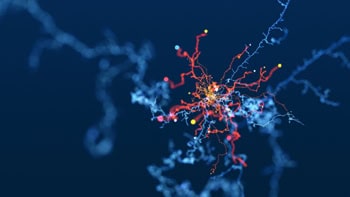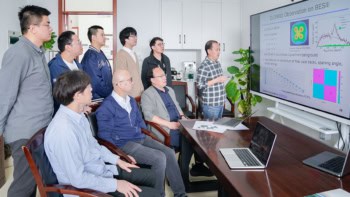Lilly Liu is an associate professor at the University of Bristol, UK, where she has built up an experimental research group studying the mechanics of advanced materials, including those used in particle accelerators, nuclear reactors, aerospace engines and other extreme conditions

What skills do you use every day in your job?
I teach undergraduates and head up a team of more than 10 people – so managing, teaching and communication skills are vital. This type of project management does not, however, just involve organizing people. It also requires an in-depth scientific knowledge to solve different technical questions and an ability to know how best to distribute resources to achieve our end goals. At the same time, when our group’s PhD students and postdocs run into setbacks and frustrations, I have to encourage them through these difficulties and help them develop their research ideas, interpret experimental results and write up papers and reports. I always try to learn about my colleagues’ long-term career plans so I can point them to the right training and help them build the right skills for the future.
What do you like best and least about your job?
Whenever we get new results, we need to know how to interpret and make sense of the data. So what I like best is working with our PhD students and postdocs to go over the data, try to figure out the underlying science, and establish if anything new is going on. In doing so, we can identify gaps in the research that have to be addressed to achieve the end goals and understand the materials better.
I also enjoy crafting research proposals. Many find this process tedious and difficult, but I like it because by addressing the questions demanded by the relevant funding agency, my ideas and hypotheses about a particular problem become clearer. Whenever I start drafting a proposal, I usually only have a general idea about how to solve a problem of interest to industry. But as I refine my proposal with my team, we can discuss the ideas in detail and in a systematic way.
In addition, I like working with others as a team or a wider consortium from academia and industry. These days it would be impossible, especially in nuclear or aerospace, for one individual or one team to solve every problem. We need team work, with everyone bringing their own skills and specialities.

Uncovering the tiny defects that make materials fail
On the flip side, while I enjoy basically everything I do, the high workload takes some of the fun away. Over the past few years, I’ve been trying to polish my time-management skills and optimize processes to help with this. For example, I’ve taken training on a Female Leadership Initiative from my university and gathered some tips from my cohort, which I’ve found extremely helpful.
What do you know today that you wish you knew when you were starting out in your career?
When I was starting out, I thought that having a permanent position in academia meant I’d be free to do whatever research I wanted. But when I became a group leader, I realized it’s not like that. You’re at a different stage of your career, with very different responsibilities from being a PhD student or research fellow. Had I known this, I’d have taken the chance to fully enjoy every stage of my career, first as a PhD student, then as a postdoc and an independent research fellow as well as now. The pandemic has also reminded me to cherish life even more and to enjoy every single day I live.



